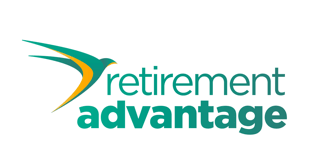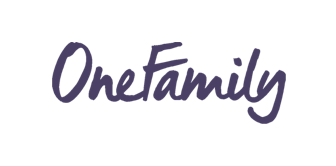Is Equity Release the right choice?
Equity release is a popular solution for homeowners over 55 in the UK and offers a unique way to access the value tied up in one’s home. This solution has helped many people (see our customer stories) But is it the right choice for everyone?
We delve into the intricacies of equity release and its variants while acknowledging its benefits and limitations. We’ll explore why, despite its increasing popularity, equity release might not be the best fit for every homeowner. Further, we introduce you to a range of alternative options, broadening your financial planning horizons.
At its core, equity release refers to a set of financial products designed for homeowners, typically over the age of 55, allowing them to release the value of their home while continuing to live in it. Using the release money to spend however they wish – the uses of equity release are endless.
There are two primary types of equity release: lifetime mortgages and home reversion plans. A lifetime mortgage involves taking out a loan secured on your home which does not need to be repaid until you pass away or move into long-term care. On the other hand, home reversion plans involve selling a part or all of your home to a reversion company in return for a lump sum or regular payments, while retaining the right to live there.
While equity release can provide a substantial financial boost, particularly in retirement, it’s not a one-size-fits-all solution. Factors such as your financial situation, long-term plans, and even the legacy you wish to leave behind for your family, play a crucial role in determining its suitability. As such, it’s essential to consider the array of alternatives that exist. These alternatives can offer similar benefits without some of the drawbacks associated with equity release.
In the following sections, we’ll explore these alternatives in detail, helping you understand their mechanics, benefits, and potential drawbacks. From downsizing to taking out an unsecured loan, each option will be scrutinised to provide a comprehensive understanding, ensuring you make an informed decision tailored to your unique circumstances.
Alternatives to Equity Release
When considering alternatives to equity release, there are several options to explore, each with its own set of pros and cons:
Budgeting: Reviewing and adjusting your household budget can be a straightforward step. Look into reducing unnecessary expenditures like unused subscriptions, ensuring you’re claiming all entitled benefits, shopping around on household bills such as car insurance and little steps such as meal planning to help stick to household budgets and reduce waste. Small changes can significantly impact your financial situation.
- Pros: No external obligations; can improve financial control.
- Cons: Limited by existing income and expenses; may not substantially increase available funds
Selling Possessions: If you have valuable items (like cars, jewellery, shares, or bonds) that you’re willing to sell, this can be a quick way to access cash. Selling these assets can range from small items at a car boot sale to larger ones through specialised dealers such as antiques or art dealers.
- Pros: Quick cash access; no debt incurred.
- Cons: One-time solution; emotional difficulty in parting with personal items.
Downsizing: Moving to a smaller, less expensive home can release a substantial amount of equity. While it can provide both immediate cash and ongoing cost savings, downsizing is a significant lifestyle change and involves costs like estate agent fees and stamp duty but while there may be some costs it can help provide substantial cash injection.
- Pros: Releases significant equity; may reduce living costs.
- Cons: Moving costs; emotional impact; may reduce future property value growth.
Remortgaging: This involves either taking a new mortgage on your fully owned home or altering your current mortgage. Retirement Interest Only mortgages, which require only interest payments during your lifetime, can be an option. However, not everyone will qualify for remortgaging due to income or age restrictions.
- Pros: Retain homeownership; potential for lower interest rates.
- Cons: Increased monthly outgoings; eligibility issues due to age or income.
Help from Family or Friends: Seeking financial assistance from family or friends can be a viable option. It can offer more flexible and possibly interest-free repayment terms. However, it’s important to have clear agreements to avoid misunderstandings or family conflicts.
- Pros: Flexible terms; potential for low or no interest.
- Cons: Risk of relationship strain; lack of formal legal protection.
Grants for Home Adaptations: If you need to make health-related modifications to your home, check if your local authority or charities offer grants. Such adaptations could include grab rails, ramps, or even more substantial changes like fitting a wet room.
- Pros: Non-repayable funds; improve home accessibility.
- Cons: Limited to specific uses; may have eligibility criteria.
Renting Out a Room: If you have a spare room, renting it out can provide additional monthly income. It’s a less complicated process than renting out an entire property, but it still requires ensuring the safety and maintenance of your home.
- Pros: Steady additional income; relatively simple setup.
- Cons: Loss of privacy; potential tenant issues; tax implications.
State Benefits: Investigating your eligibility for state benefits can provide an additional income source. Websites like entitledto.co.uk can help determine what benefits you may be entitled to.
- Pros: Ongoing additional income; non-repayable.
- Cons: Limited to eligibility criteria; may not cover all financial needs.
Returning to Work or Changing Employment: If feasible, returning to work or finding a higher-paying job can significantly increase your monthly income. This option is especially worth considering for those who are retired but still able to work.
- Pros: Increased income; potential social benefits.
- Cons: May not be feasible for everyone; physical and time demands.
Utilising Private Pensions: Drawing from private pensions can be another way to access funds, either as a lump sum or additional monthly income. Working with a financial advisor is advisable to understand the implications and to access funds in the most tax-efficient manner.
- Pros: Access to funds; potential tax benefits.
- Cons: May impact long-term retirement planning; tax implications.
Do Nothing: Sometimes, the best action might be inaction, especially if the alternatives could negatively impact your lifestyle or financial situation. This approach requires careful consideration of your current and future financial needs.
- Pros: Avoids financial risk and upheaval.
- Cons: May not address underlying financial needs; could lead to future financial strain.
Each of these options comes with its own set of advantages and disadvantages, and what suits one person may not be the best choice for another. It’s crucial to consider personal circumstances, financial goals, and potential impacts on the future and inheritance before making a decision. Remember there are pitfalls of equity release and it’s a big financial decision.
Overall, our experience with Premier Equity Release has been first class, and we can confidently recommend them to anyone needing sound unbiased advice on Equity Release lending.
Mr & Mrs Baxter, Northamptonshire
Equity Release Substitutes
In conclusion, while equity release presents a viable financial solution for many, it’s crucial to consider its alternatives. These options range from selling assets and downsizing to remortgaging, seeking help from family and friends, tapping into state benefits, applying for local authority grants, renting out space, returning to work, drawing from private pensions, using credit cards and personal loans, to re-evaluating spending habits.
Each option has unique benefits and drawbacks, tailored to different financial situations and goals. To navigate these choices effectively, seeking independent advice is key.
At Premier Equity Release we can assist you in exploring these alternatives, by focusing on you and learning your unique situation we look to offer guidance tailored to your specific circumstances. For comprehensive and independent advice don’t hesitate to contact us, ensuring you make the most informed decision for your financial future.
What else would you like to know?
What can Equity Release be used for?
USES FOR EQUITY RELEASEWhat should my family know?
FAMILY MEMBERSWhat costs are involved with Equity Release?
COSTSHow can I get the best interest rate?
RATESWho do we work with?
There are a few key providers in the Equity Release market that also work within the Equity Release Council’s guidelines. As trusted providers, we’re happy to work with all of them:














